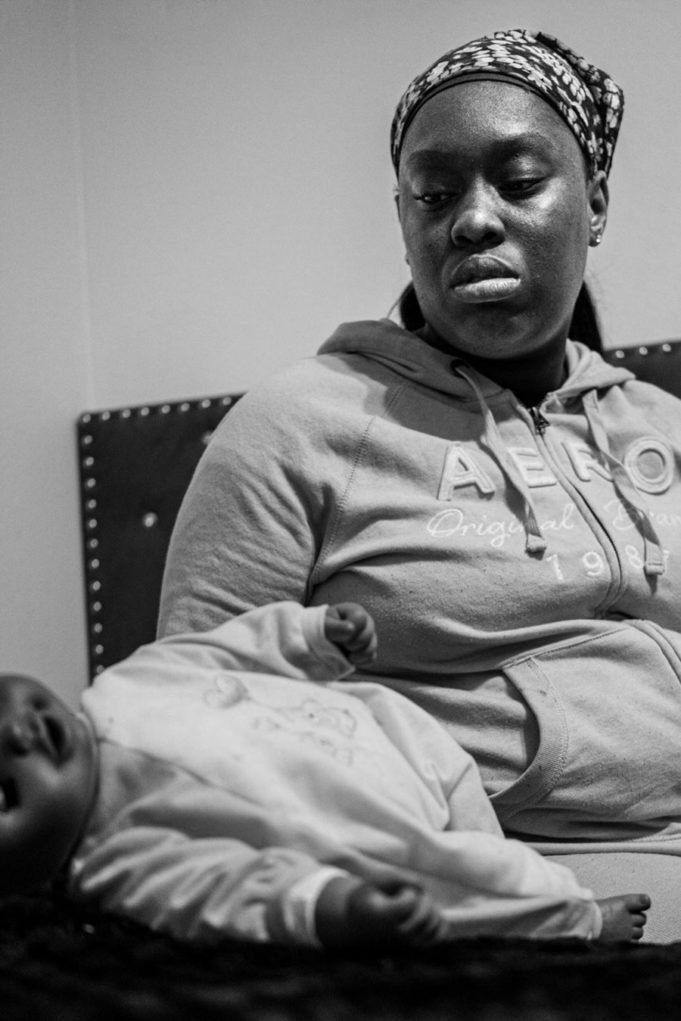Javonte Myers’ body lay unattended for as long as six hours before anyone noticed he’d died. Based on findings by the Tarrant County medical examiner, the 28-year-old suffered a seizure. The problem is that he was being held in the Tarrant County Jail, a place where 52 inmates have died since Sheriff Bill Waybourn was sworn into office in 2017. In the year of Myers’ death, 2020, the jail saw the most deaths of any similar North Texas facility and twice the number of fatalities as Dallas County’s larger detention center, according to the Dallas Morning News.
Many civil justice minds see a pattern.
Tarrant County recently settled a wrongful death lawsuit with Myers’ family for $1 million. This is notable because jails are rarely found liable for deaths. One of the biggest obstacles facing victims or their survivors seeking restitution is proof that deputies and their bosses willfully disregarded county and state policies for checking on detainees and providing prompt medical attention.
But based on some explosive previously unreleased audio, the pattern seems very real in Tarrant County. At its core are jail bosses forcing jailers to falsify information to give the appearance that state guidelines for inmate checkups were followed, an effort that would potentially help Tarrant County avoid civil liability in the event of an in-custody death.
State law requires independent investigations of jail deaths, and in Tarrant County, the Texas Rangers field most of the cases. We requested copies of the audio recordings tied to the Myers investigation as part of our broader, ongoing look into the role the sheriff’s department plays in jail deaths. The previously unreleased recordings contain testimony from two former Tarrant County jailers describing sheriff officials condoning and even encouraging jailers to falsify detainee checkup reports that are required to be completed every 30 minutes.
Trace McDonald, who worked as a Ranger at the time before the sheriff’s office hired him as a member of their narcotics team last year, interviewed jailers Erik Gay and Darien Kirk, whose shifts coincided with Myers’ death. Gay’s unnamed defense attorney was also present during the discussion.
Former Ranger McDonald says the district attorney’s office “may not do anything at all” except perhaps “go after” the two jailers for one count of falsifying a government document and “be done with it.”
“I hate that it happened to y’all,” McDonald continues. “There is a remote chance it might have saved [Myers] had we kicked on the door. I’m not trying to place any blame on you. This would have never been a big issue had not somebody died. Did you intentionally falsely put those entries in there?”
Gay: “They were put in and not done, yes.”
Attorney: “Tell him about the global reasons why it happens the way it does. Tell the whole story.”
Gay: “That goes further up than just officers. Supervisors know about it.”
Attorney: “If you are going to get in trouble for this, then you need to tell the whole story.”
Gay: “Even after the in-custody death from the baby being born and suicides, the only thing [sheriff department leaders] are concerned about is making the computer look good. They tell you, ‘If you are feeding [detainees], stop what you are doing, [log a round of checkups], and go back to feeding,’ so you are openly …”
Attorney: “ ‘Openly’ what?”
Gay: “Falsifying a government document.”
Attorney: “When you say ‘they,’ who are you talking about?”
Gay: “Sergeants and lieutenants. There are memos they put out as well. I asked my supervisor why they are doing this.”
McDonald: “I’m not going into this. This could certainly open a Pandora’s Box. For me, when you say a lot of that stuff, it is going to apply to internal affairs a lot more than me. I don’t know how that jail works at all. Right now, we are focused on this and you.”
Attorney: “It goes to his state of mind when he was [falsifying the reports]. It is important to say the whole story now. We look at this as one big issue and not separate issues.”
McDonald: “I get how hard it would be to do all of your duties and keep up with this thing accurately as well. I’m not mad at you at all. It’s a technical thing that unfortunately happened around the death of a guy that may cause some stink. Hopefully, we’ll get through it. For me, even if you walked down the hall at all, I tended to give you credit for it, even though you didn’t look into the individual cells. I was primarily focused on the dead guy’s cell. Anything else?”
Attorney: “This is a systemic issue that has created itself. The jailers, the detention offices, are given the choice of doing what they are ordered to do, which is not practical or possible, or doing what they should do and getting disciplined for it, so …”
Based on the released audio, jailer Kirk, who was interviewed separately from Gay, said jail staffers often falsify reports to be able to chat inside the watch tower instead of checking on detainees every 30 minutes. The DA’s office indicted Gay and Kirk on multiple felony charges of tampering with a government document in 2020. A DA spokesperson declined to describe the status of Gay’s and Kirk’s cases. We will update this article as information becomes available. Sheriff Waybourn’s office did not acknowledge our requests for comment.
Details from the interviews could hinder the county’s ability to fight an ongoing lawsuit filed by civil rights attorney Jerrett Adams, who represents Chasity Congious, the cognitively impaired mother of the newborn who died at Tarrant County Jail soon after birth in mid-2020. County leaders have refused to settle, preventing Chasity from receiving the medical and mental health care she needs, especially after the trauma of losing her only child while jailers detained her during a mental health crisis (“ Justice for Chasity,” Jan. 2022). During the early-2020 flare-up at home that preceded Chasity’s arrest, Chasity’s mother, Kimberly Hammond, told Fort Worth police officer David Nguyen to take Chasity to John Peter Smith Hospital for mental health treatment and proper medication — not to county jail.

Photo by Agustin Gonzalez
Adams told us Tarrant County leaders are obstructing his requests for evidence (which would include video footage and jailer logs) that could reveal the same patterns of willful negligence and potentially criminal misconduct that, based on the released audio, may have led to Myers’ death.
Three other lawsuits similarly seek monetary damage from the county for alleged wrongful deaths or mistreatment at the jail. Georgia Baldwin’s family is suing over their mother’s 2021 death. Baldwin, 52, was arrested in April of that year for leaving threatening voicemails to an Arlington police officer. Baldwin suffers from severe mental illness, and her relatives believe she may not have been fully aware of what she was doing or the potential consequences. Baldwin refused to take her medication and stopped showering during the three months before her death.
Robert Miller is another inmate who died in Tarrant County Jail and whose family is taking action. Just hours after his booking in 2019, county staffers rushed him to JPS, where doctors found he had low levels of oxygen, inflamed lungs, and no brain activity. The medical examiner’s report, which was backed by Ranger McDonald, found sickle cell anemia to be the cause of Miller’s death, but the Star-Telegram recently cast doubt on the findings. JPS doctors, the paper said, never noted Miller had the hereditary disease, and it is highly unlikely that an adult would not know they had the red blood cell deformities. Miller’s medical reports did note he showed signs of being repeatedly pepper-sprayed at close range.
Suing any municipality for a wrongful death is all-but-impossible when supposed natural causes led to the fatality, based on common legal practice, which may account for the Rangers’ poor history of finding jail staff or police at fault for deaths of detainees. As with Adams’ lawsuit, the county appears to be hiding surveillance footage that could show county culpability for wrongful deaths.
“The jail has video surveillance of Miller before and after he was pepper-sprayed, but the Ranger [McDonald] didn’t watch it,” the Star-Telegram said. McDonald “asked a sheriff’s deputy to review the tape. The sheriff’s office has refused to release the video, with the backing of the Texas attorney general.”
The lawsuit has been filed by Shanelle Jenkins, Miller’s widow.
Another plaintiff, Cory Rodrigues, unlike many victims of beatings by police and jailers, survived his injuries. His mid-2020 hospitalization, based on video footage described by numerous media outlets, resulted from assaults by Jailer Reginald Roy Lowe that fractured Rodrigues’ ribs and cheekbone. County officials quickly fired Lowe and the other detention officers who failed to intervene in the beating, and a grand jury indicted Lowe on one count of aggravated assault (a felony) and official oppression (Class-A misdemeanor). At the request of DA Phil Sorrells, the charges were abruptly dropped, and the DA’s office has refused to explain why, although we said they may be an attempt by the DA to undermine Rodrigues’ civil lawsuit (“ Pulling Favors,” July 6).
Adams, who routinely files civil rights lawsuits across the country, said Texas law enforcement is particularly incestuous with its personnel. Jailers, prison wardens, sheriff’s deputies, and the Texas Rangers, who are supposed to police the police, hire and promote across their respective institutions. Ranger McDonald investigated more than 20 in-custody deaths at Tarrant County Jail between 2019 and 2021 before the Tarrant County Sheriff Department’s narcotics unit hired him last year. Adams feels there’s a good reason McDonald was sympathetic with Gay, Kirk, and two other jailers he interviewed about Myers’ death.
McDonald’s “Pandora’s Box” statement follows a pattern of “serious flaws” in Texas Rangers’ investigations which The New York Times recently said have exonerated dozens of cops and jailers. Ranger Adam Russell found the 2017 death of Kelli Leanne Page, 46, to be unrelated to several Dallas sheriff’s deputies punching, beating, and pinning her down until she stopped breathing. Even when the autopsy listed asphyxiation as the cause of death, Russell refused to file charges against the jailers. The Times uncovered 29 similar cases since 2015, “in which a person stopped breathing after struggling with local authorities. None of those inquiries led prosecutors to charge anyone in law enforcement. In two-thirds of the cases, the Times found shortcuts, missteps, or judgment calls that some veteran homicide detectives said might indicate a lack of effort on the Rangers’ part.”
At the request of Hammond and Congious, who recently bought a baby doll to help her cope with losing a newborn, Adams is seeking “injunctive relief,” meaning court-ordered third-party oversight of the county jail. When provided with the right evidence, Adams said, a jury could potentially award Congious and her mother tens of millions in punitive damages or more for the wrongful death case, especially since a newborn is involved.












